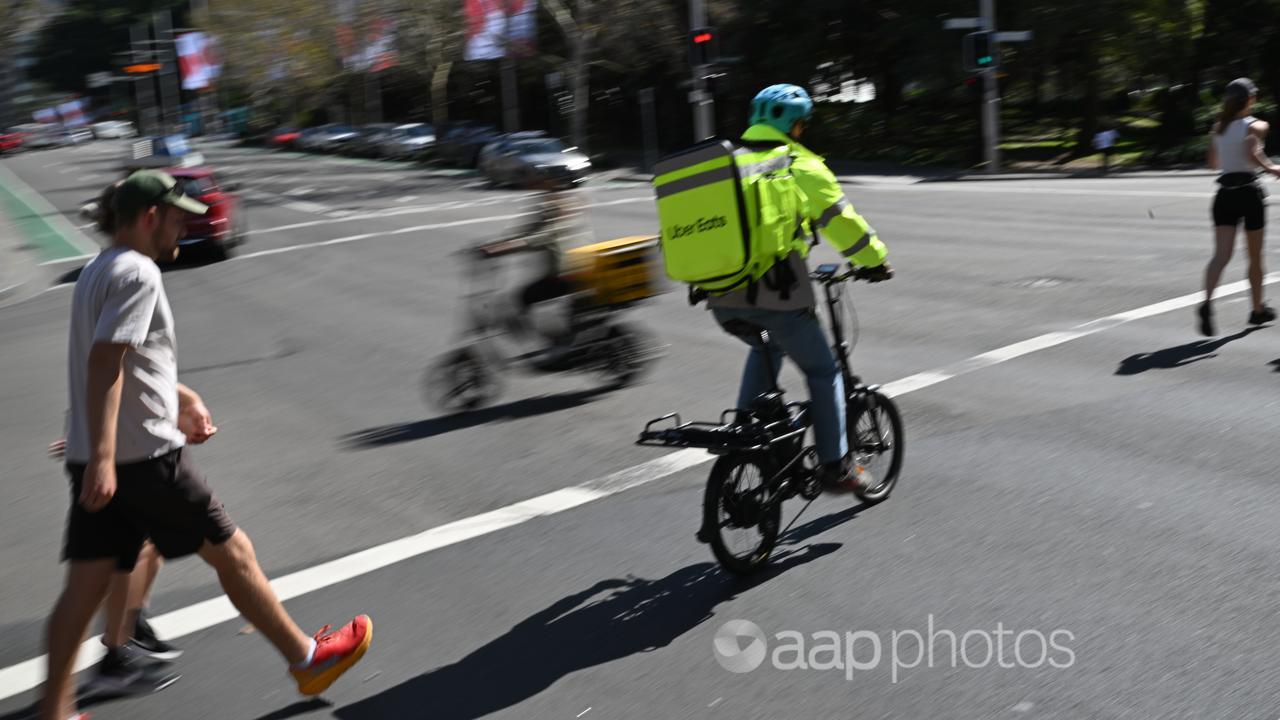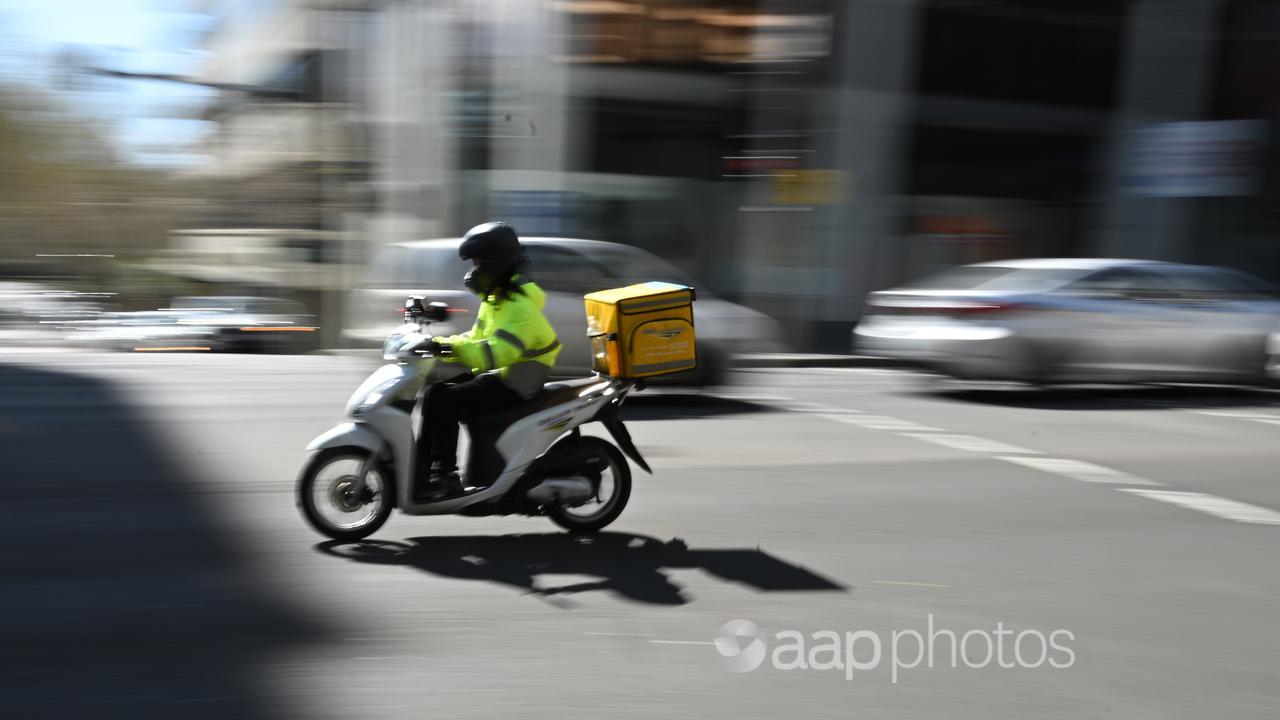Truckies, food delivery drivers and parcel couriers have seized on a right to apply for better wages and working conditions.
The Transport Workers’ Union has applied for a pay safety net so drivers can recover costs, earn a living wage and get company-funded superannuation.
The application was lodged with a new road-transport wing of the industrial umpire.
Gig workers aren’t classified as employees and miss out on leave entitlements and minimum wages.
Many work at companies like UberEats, DoorDash and Menulog.
Laws enacted this week give gig workers, owner-driver couriers and truckies access to the Fair Work Commission.
Gathered outside the commission on Wednesday, food delivery drivers spoke of rushing between drop-offs and risking their safety, scrambling between jobs to cover their costs and earn a decent wage.
At least 1780 people have been killed in truck crashes and 486 transport workers have died on the job in the past 10 years.
“We don’t have any personal leave, we don’t have any sick leave, we don’t get any loadings, we don’t have any entitlements, we don’t get any breaks,” delivery driver Utsav Bhattarai told reporters in Sydney.
Business groups have raised concerns about introducing minimum standards for gig delivery drivers, warning the changes could harm flexibility and increase costs, meaning customers would pay more.

Federal opposition spokeswoman Michaelia Cash said it could have “far-reaching negative ramifications across our economy”.
The companies involved have committed to creating fair minimum standards and protecting flexible working arrangements.
“We will work hard to ensure that the views of thousands of Australians who seek flexible work, including single parents, carers, students with language barriers and older Australians, are taken into account,” DoorDash told AAP.
“It’s critically important to them that they retain the capacity to work when and how they choose.
“Any reform introduced that doesn’t recognise the unique value of this choice will negatively impact those Australians who rely on this work.”
Menulog said it had a history of lifting conditions for couriers.
“We remain supportive of sustainable, balanced and clear minimum standards that do not compromise how couriers like to work.”

Transport union boss Michael Kaine said he wasn’t sure what impact the changes would have on food prices or company costs.
But customers would be willing to pay a bit extra if it means their delivery driver was well paid and safe, he said.
Mr Kaine described the application as a watershed moment for Australia’s 500,000 transport workers.
Steve Cotton, from the International Transport Workers Federation, said it could help define global standards.
“We can’t wait to take what you’ve delivered here to the rest of the world,” he said.
His federation represents 16.5 million transport workers across more than 150 countries.
The application does not cover rideshare drivers because the union is still consulting with that industry.
Mr Kaine said he wanted that process completed as quickly as possible.




















